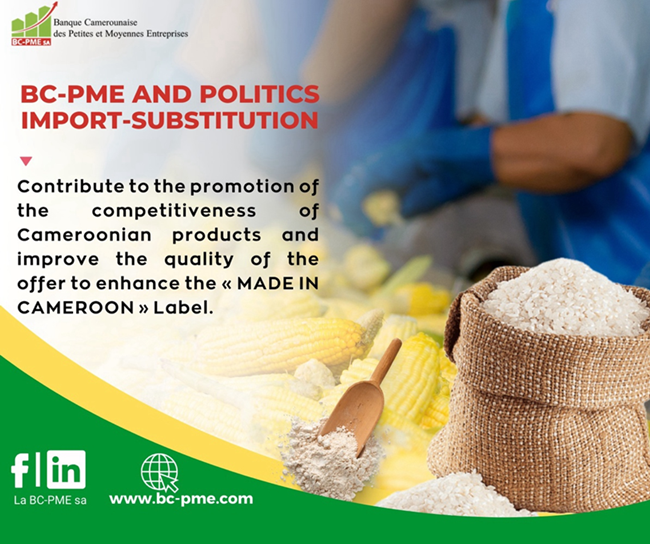One of the major orientations of the National Development Strategy 2020-2030 (SND30) is the implementation of the import substitution policy, the objective of which is to reduce Cameroon’s economic dependence, including the strengthening of food sovereignty. . To this end, it is a question of considerably reducing imports of products for which the local supply is abundant and substitutes available. It is therefore imperative to model the local processing of basic products, make raw materials available, upgrade small and medium-sized businesses and facilitate access to financing; which in total constitute important levers of economic growth.
It is with this in mind that the Cameroonian Bank of Small and Medium Enterprises (BC-PME SA) through its Guichet Agricole positions itself on priority sectors of agro-industrial development, notably local flours (banana-plantain, cassava, potato). sweet), poultry farming, cereals (corn, rice, sorghum, millet, etc.), cocoa & coffee and fish farming for:
The increase in local production;
Strengthening the competitiveness of businesses;
The development of downstream, that is to say the processing industries of our basic products as part of the structural transformation of Cameroon’s economy.
BC-PME aligns itself as a major player in supporting and financing its five priority sectors to contribute significantly to the promotion of import substitution.
#BCPME #Banque #Cameroun #Financement #SND30 #Wenesday #PME #PMI #Agrobusiness #Maïs #Riz #Farine #ImportSubstitution



